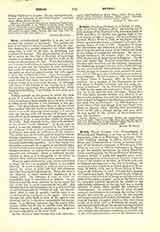

Error, reduplicatively regarded, is in one way or another the product of ignorance. But besides the lack of information which it implies, it adds the positive element of a mental judgment, by which something false is held to be true, or something true avouched to be false. The subject-matter of error so far as morals go, like that of the want of knowledge whence it proceeds, is either (I) the law itself, or (2) a fact, or circumstance of a fact. In the first instance, one is astray in affirming or denying the existence of a law, or at any rate the inclusion of some individual case under its operation. In the second, one is laboring under an equal misapprehension, but with regard to some fact or aspect of a fact. Thus, for example, a Catholic, who in some unaccountable way would persuade himself that there was no law of abstinence on Friday, would be in error as to the law. If, although well aware of the precept of the Church, he is under the mistaken impression that a particular day, which happens to be Friday, is not Friday, he is in error as to the fact.
Taking account of the person in whom the error exists, it is said to be either vincible or invincible. Error is deemed to be invincible when, in spite of what is called moral diligence in the premises, it still persists. This may happen either because one has never been touched with any doubt as to the validity of one’s stand, or as to the necessity of an inquiry, or it may be that one having, with full honesty of purpose, used such efforts as are demanded by the importance of the question at issue, is nevertheless unable to discover the truth. Much depends on the value to be attached to the phrase “moral diligence”. It is not easy to state it in any set formula, unless it be this, that it is the diligence which prudent persons are accustomed to bring to bear upon the settlement of like matters. This notion may be set forth more in detail by the following considerations: (I) The moral diligence required does not mean that a person is to have recourse to every conceivable expedient. (2) It does imply that the endeavors made by an agent, to set himself right, should be such as are exacted by the seriousness of the business involved, as well as bear a proper ratio to his capacity and resources. Error is reckoned morally vincible as often as it is chargeable to the failure to exercise these ordinary and necessary precautions. When an agent deliberately omits means calculated to dispel his error, or purposely fosters it, it is called affected. It is not so styled to indicate that it is simulated, but rather to point out that the erroneous tenet has been studiously aimed at. When the error is the offspring of sheer unrelieved negligence, it is termed crass. The influence of error on moral responsibility may be determined as follows. An act done in invincible error, whether the latter regard the fact or the law, is never impeachable as a sin. The reason is that, in this hypothesis, there is no knowledge of, and consequently no volition of, evil. On the contrary, what is done in morally vincible error is esteemed properly imputable to the agent. This is so, because the error itself is then of the agent’s own choosing, and he is therefore accountable for its outcome. It is obvious, however, that the moral delinquency which has its rise in vincible error will have various degrees of guilt, in proportion to the greater or lesser culpability of the error itself.
JOSEPH F. DELANY

